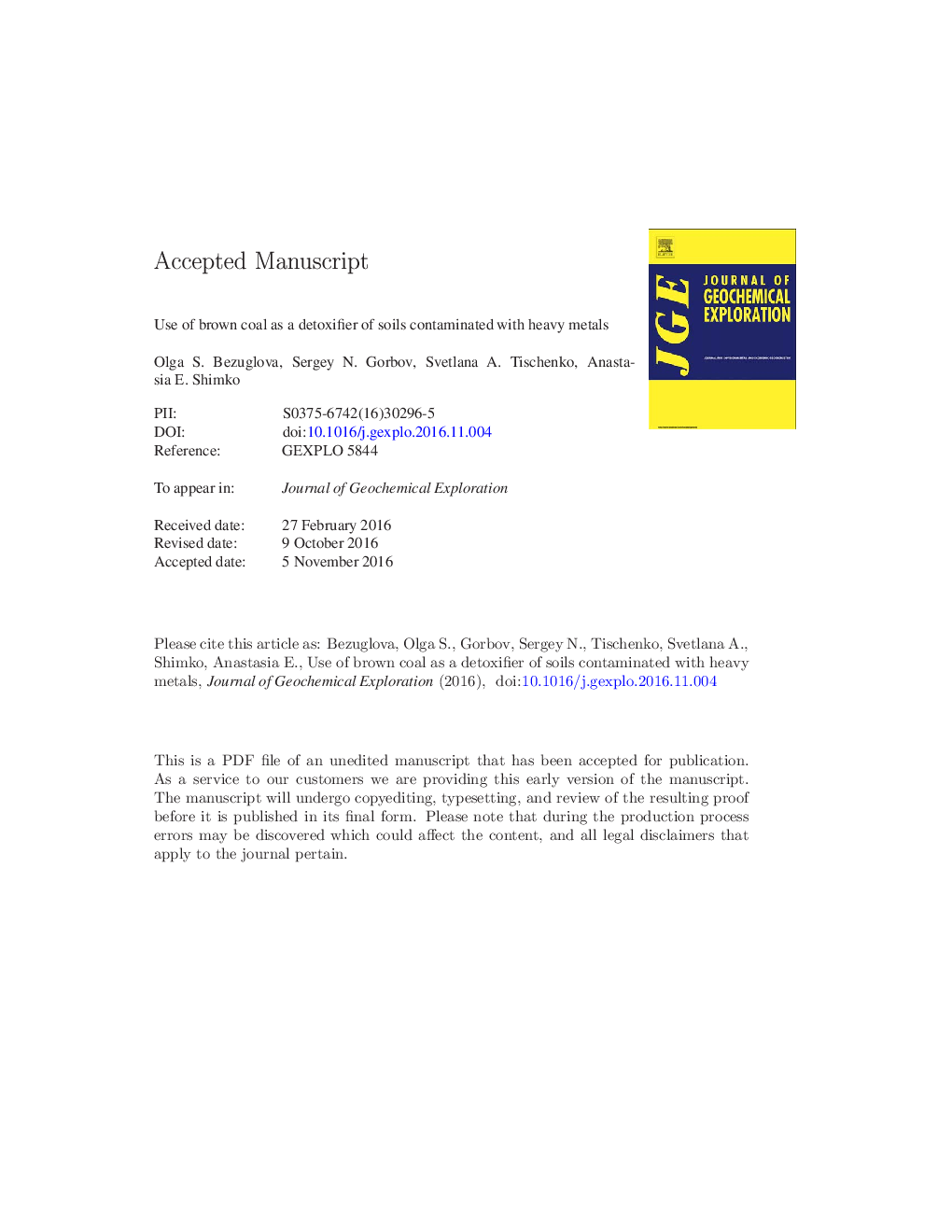| Article ID | Journal | Published Year | Pages | File Type |
|---|---|---|---|---|
| 8866126 | Journal of Geochemical Exploration | 2018 | 25 Pages |
Abstract
The main objective of the work was to study the applicability of brown coal as a sorbing and detoxifying agent of soils contaminated with heavy metals. Both laboratory experiments and field small-plot experiments on an Urbanozem contaminated with lead and zinc have been conducted. Brown coal from the Aleksandria deposit (Ukraine) has been used as a sorbent. It has been shown that brown coal has an increased capacity to sorb heavy metals due to the large specific surface area and the presence of functional groups capable of ensuring the chemosorption of contaminant cations. However, the degree of adsorption by brown coal varies among the cations. Brown coal can be recommended as an ameliorant for soils contaminated with lead, zinc, and copper. It is important to correctly calculate the application rate of the ameliorant. An empirical formula was proposed for the calculation of the ameliorant rate, which can be used for the most cost-efficient detoxification method of soils contaminated with lead, zinc, and copper.
Related Topics
Physical Sciences and Engineering
Earth and Planetary Sciences
Economic Geology
Authors
Olga S. Bezuglova, Sergey N. Gorbov, Svetlana A. Tischenko, Anastasia E. Shimko,
